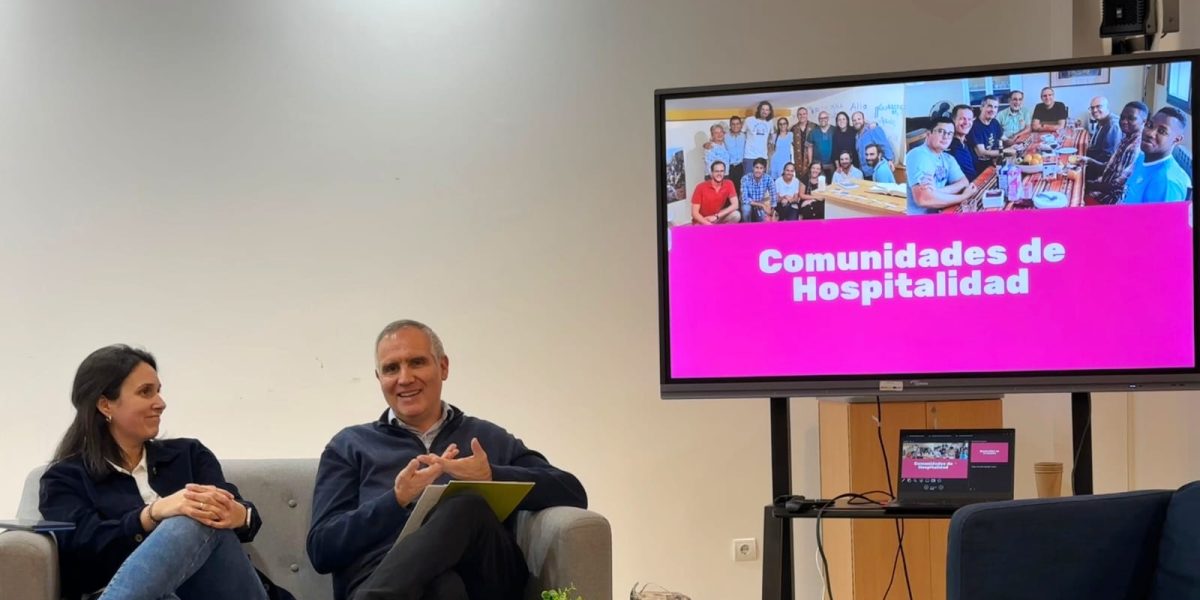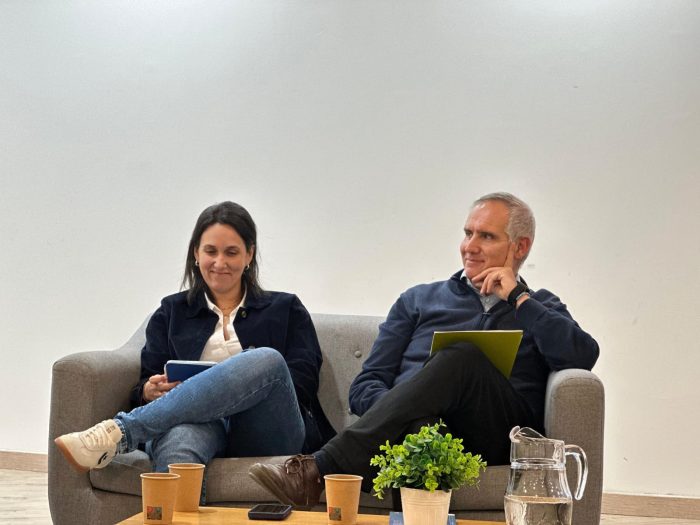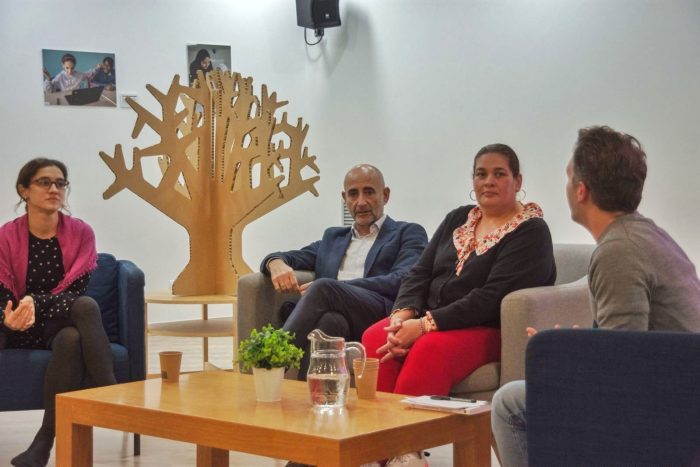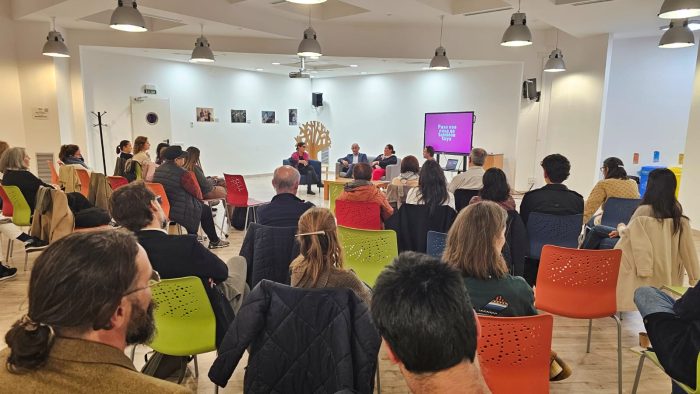“Being an Open Door”: Hospitality at the Heart of Spirituality
24 February 2026

On Tuesday 11 November, Casa San Ignacio in Madrid’s Barrio de la Ventilla hosted the presentation of the book Ser puerta abierta: La hospitalidad en el corazón de la espiritualidad (“Being an Open Door: Hospitality at the Heart of Spirituality”). More than forty people gathered for an evening that wove together theological reflection, personal testimony and the lived experience of welcoming refugees and migrants.
Co-authored by three specialists in migration and social theology – Alberto Ares Mateos SJ (Director of JRS Europe), Jennifer Gómez Torres (specialist in international migration and member of the Inclusion/Human Mobility team at Cáritas Española) and María del Carmen de la Fuente (Director of SJM Spain) – the book explores hospitality not as an isolated gesture, but as a way of being in the world.
Hospitality as a way of life
In conversation with participants, Alberto and Jennifer underlined that a door is never neutral: it is always either opened or closed. To “be an open door” means choosing encounter over fear, relationship over indifference.
Hospitality, they stressed, is far more than kindness offered to those we already like. In a context of polarisation and growing hostility towards migrants, welcoming the stranger becomes both deeply spiritual and quietly revolutionary. It is an act that tells the other: “You matter. Your dignity is sacred. You belong here.”

From ideas to shared life
The second part of the evening moved from reflection to practice through the experience of the Hospitality Program of Pueblos Unidos (Servicio Jesuita a Migrantes in Spain).
Belén, coordinator of the program, shared the floor with Karina, who arrived in Spain from El Salvador with her family in 2019, and José, a member of one of the hospitality communities that opened their home to them.
José spoke honestly about the fears that many hosts feel at the beginning: Will we be able to accompany them? Will we know how to listen? How will this change our daily life? Over time, those questions gave way to friendship, trust and a sense of extended family born from everyday life shared under the same roof.
Karina described how hospitality had changed her family’s future:
“You cannot imagine the difficult things we had to go through in our country… Here we were accompanied to start again; we were supported to move forward from the very first moment. They changed our future. My children are studying, we can walk safely in the street, we have work. Spain opens the door to many migrants, and we are grateful.”
For Belén, these stories show that hospitality is not an abstract ideal but “shared life and encounter”, and an accessible path for many: there are simple, concrete ways to get involved, even when the public debate makes everything sound complicated.

A book born from experience
Ser puerta abierta gathers years of walking alongside migrants, refugees and communities of hospitality. Across its chapters, the book:
- Revisits the biblical and spiritual roots of hospitality in the Christian tradition.
- Reflects on fragility and fear as starting points for encounter – recognising our own vulnerability so we can welcome that of others.
- Explores the “magic of encounter”: the simple yet transformative power of shared meals, conversations and time.
- Looks at intercultural hospitality, seeing diversity not as a threat but as a gift that enriches communities.
- Presents the Communities of Hospitality as concrete spaces where hospitality becomes shared life, not only shelter.
- Understands migration as an opportunity for reconciliation, healing memories and opening new futures.
Each chapter ends with questions for personal or group reflection, making the book a practical tool for parishes, communities, social organisations and anyone who wishes to deepen a spirituality of welcome.

An invitation to open the door
In a Europe tempted to close in on itself, Ser puerta abierta is both a gentle and urgent invitation: to move beyond mere tolerance and rediscover hospitality as a spiritual force capable of healing wounds and weaving fraternity. This vision resonates strongly with the Path of Hospitality campaign, which invites communities to walk concrete “steps” of welcome – from opening their eyes to the reality of people on the move, to sharing time, home and resources in a more committed way. By linking reflection, prayer and action, the Path of Hospitality helps translate the book’s intuition into everyday choices in parishes, communities and families across Europe.
The testimonies shared at Casa San Ignacio reminded everyone present that hospitality transforms both the person who is welcomed and the one who opens the door. To welcome the stranger is to rediscover our own humanity – and to believe, once more, that a shared future of justice and peace is possible.
